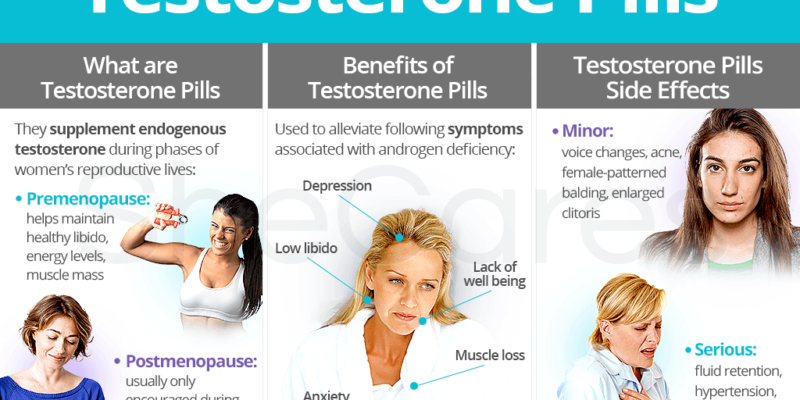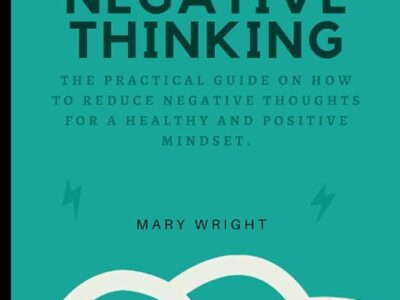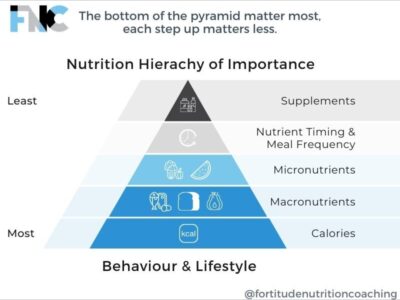Testosterone boosters are popular among men looking to increase their muscle mass, sex drive, and energy levels. However, these supplements are not exclusively used by men. Women also sometimes use testosterone boosters for various reasons, and understanding what happens when a woman takes a testosterone booster can provide valuable insight into the potential benefits and risks associated with this practice.
The Role of Testosterone in Women’s Bodies
While it is true that testosterone is typically associated with men, this hormone also plays an essential role in women’s bodies. In fact, women naturally produce small amounts of testosterone in their ovaries and adrenal glands. This hormone contributes to functions such as sex drive, red blood cell production, and fertility.
However, women produce significantly lower levels of testosterone compared to men. Consequently, supplementing with testosterone boosters may lead to hormonal imbalances and potentially adverse side effects.
Reasons Women May Take Testosterone Boosters
There are several reasons why women might consider using testosterone boosters, including:
- Improving athletic performance: Some female athletes may take testosterone boosters to enhance their muscle strength and overall physical performance.
- Increasing sex drive: As mentioned earlier, testosterone plays a crucial role in regulating libido for both men and women. Some women may use these supplements to improve their desire for intimacy.
- Counteracting hormonal imbalances: Women experiencing hormonal imbalances due to conditions like polycystic ovary syndrome (PCOS) or menopause may resort to testosterone boosters to help alleviate symptoms.
Potential Benefits of Testosterone Boosters for Women
When used correctly and under the supervision of a healthcare professional, testosterone boosters can offer some benefits to women, such as:
- Increased muscle mass: Testosterone is responsible for promoting muscle growth in both men and women. Consequently, women who engage in regular physical activity and consume a balanced diet may experience increased muscle mass when using testosterone boosters.
- Improved libido: As previously mentioned, testosterone plays a vital role in regulating sex drive. Therefore, some women may notice an improvement in their libido when supplementing with testosterone boosters.
- Better mood and energy levels: Testosterone can influence mood and overall well-being. Some women may experience better mood and increased energy levels when using these supplements.
However, it’s essential to note that more research is needed to validate these potential benefits, and individual responses may vary.
Risks and Side Effects of Testosterone Boosters in Women
Despite potential benefits, there are also several risks and side effects associated with women taking testosterone boosters. These may include:
- Hormonal imbalances: Supplementing with testosterone boosters may disrupt the delicate balance of hormones in a woman’s body, leading to complications like acne, irregular periods, and mood swings.
- Masculinization: High levels of testosterone in women can cause masculinizing effects, such as deepening of the voice, increased body hair, and enlargement of the clitoris.
- Liver damage: Some testosterone boosters can be toxic to the liver, especially when taken in high doses or for extended periods.
- Reduced fertility: Elevated levels of testosterone can interfere with a woman’s menstrual cycle and potentially reduce fertility.
A Safer Alternative: Natural Ways to Boost Testosterone Levels in Women
Rather than relying on testosterone booster supplements, women can explore natural methods to achieve similar benefits without risking potential side effects. Some safe alternatives to consider include:
- Maintaining a healthy lifestyle: Eating a balanced diet, getting regular exercise, and managing stress can all contribute to healthy hormone levels and overall well-being.
- Consuming specific nutrients: Zinc, vitamin D, and magnesium have been associated with improved testosterone production. Including these nutrients in your diet may help support optimal hormonal balance.
- Consulting a healthcare professional: If you suspect that you have low testosterone levels or other hormonal imbalances, it’s crucial to consult a doctor before attempting any self-treatment. They can help identify any underlying issues and recommend appropriate treatment plans.
In conclusion, while some women may experience benefits from using testosterone boosters, there are also significant risks and side effects to consider. It is vital to weigh the pros and cons carefully and consult with a healthcare professional before deciding to use these supplements.





Comments